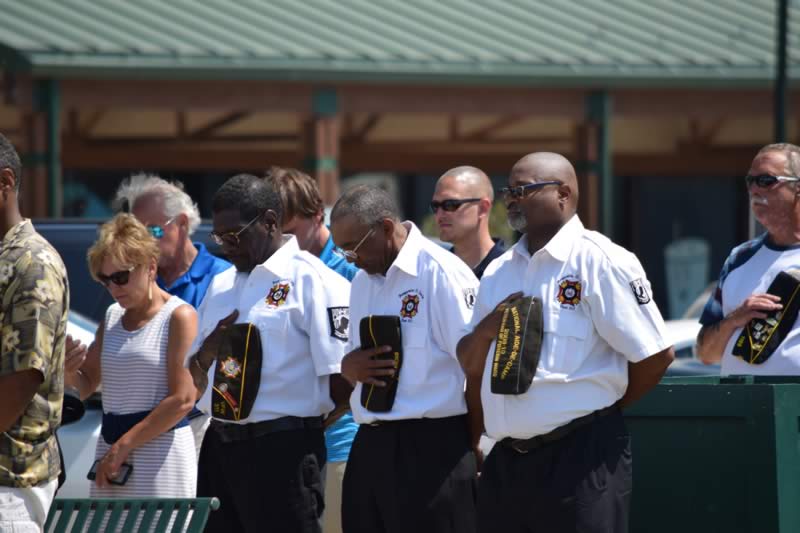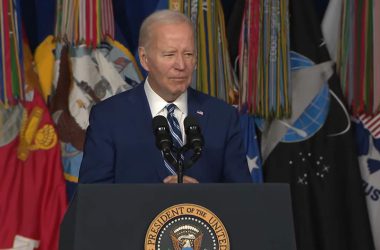Washington, DC—(ENEWSPF)—February 1, 2013. The Army released suicide data today for the month of December and calendar year 2012. During December, among active-duty soldiers, there were seven potential suicides: three have been confirmed as suicides and four remain under investigation. For November, the Army reported 12 potential suicides among active-duty soldiers: four have been confirmed as suicides and eight remain under investigation. For 2012, there have been 182 potential active-duty suicides: 130 have been confirmed as suicides and 52 remain under investigation. Active-duty suicide number for 2011: 165 confirmed as suicides and no cases under investigation.
During December, among reserve component soldiers who were not on active duty, there were 15 potential suicides (10 Army National Guard and five Army Reserve): four have been confirmed as suicides and 11 remain under investigation. For November, among that same group, the Army reported 15 potential suicides (12 Army National Guard and three Army Reserve): 10 have been confirmed as suicides and five remain under investigation. For 2012, there have been 143 potential not on active-duty suicides (96 Army National Guard and 47 Army Reserve): 117 have been confirmed as suicides and 26 remain under investigation. Not on active-duty suicide numbers for 2011: 118 (82 Army National Guard and 36 Army Reserve) confirmed as suicides and no cases under investigation.
“The Army continues to take aggressive measures head-on to meet the challenge of suicides as every loss of life impacts our family,” said Lt. Gen. Howard Bromberg, deputy chief of Staff, Manpower and Personnel. “In spite of the increased loss of life to suicide, with calendar year 2012 being our highest on record, the Army is confident that through our continued emphasis in the services, programs, policies, and training that support our Army family, we will overcome this threat to our Force. We’ve expanded the Strong Bonds Program to strengthen relationships and family bonds; broadened our training scope by certifying over three thousand additional suicide prevention trainers in the Ask, Care, Escort suicide intervention program; revised Comprehensive Soldier Fitness program to include family members (CSF2); increased our volume and availability of behavioral health services; and conducted an Army-wide stand down during Suicide Prevention Month to promote increased leaders’ awareness and involvement. Additionally, the Army will launch its Ready and Resilient Campaign to guide our efforts to improve resilience and readiness, provide quality care, and improve the effectiveness of the programs and services to ensure comprehensive care of our soldiers, civilians and family members.”
Soldiers and families in need of crisis assistance can contact the National Suicide Prevention Lifeline. Trained consultants are available 24 hours a day, seven days a week, 365 days a year and can be contacted by dialing 1-800-273-TALK (8255) or by visiting their website at http://www.suicidepreventionlifeline.org .
Army leaders can access current health promotion guidance in newly revised Army Regulation 600-63 (Health Promotion) at: http://www.army.mil/usapa/epubs/pdf/r600_63.pdf and Army Pamphlet 600-24 (Health Promotion, Risk Reduction and Suicide Prevention) at www.army.mil/usapa/epubs/pdf/p600_24.pdf .
The Army’s comprehensive list of Suicide Prevention Program information is located at http://www.preventsuicide.army.mil .
Suicide prevention training resources for Army families can be accessed at http://www.armyg1.army.mil/hr/suicide/training_sub.asp?sub_cat=20 (requires Army Knowledge Online access to download materials).
Information about Military OneSource is located at http://www.militaryonesource.com or by dialing the toll-free number 1-800-342-9647 for those residing in the continental United States. Overseas personnel should refer to the Military OneSource website for dialing instructions for their specific location.
Information about the Army’s Comprehensive Soldier Fitness Program is located at http://www.army.mil/csf/ .
The Defense Center for Excellence for Psychological Health and Traumatic Brain Injury (DCoE) Outreach Center can be contacted at 1-866-966-1020, via electronic mail at [email protected] and at http://www.dcoe.health.mil .
The website for the American Foundation for Suicide Prevention is http://www.afsp.org/ and the Suicide Prevention Resource Council site is found at http://www.sprc.org/index.asp .
Source: defense.gov








